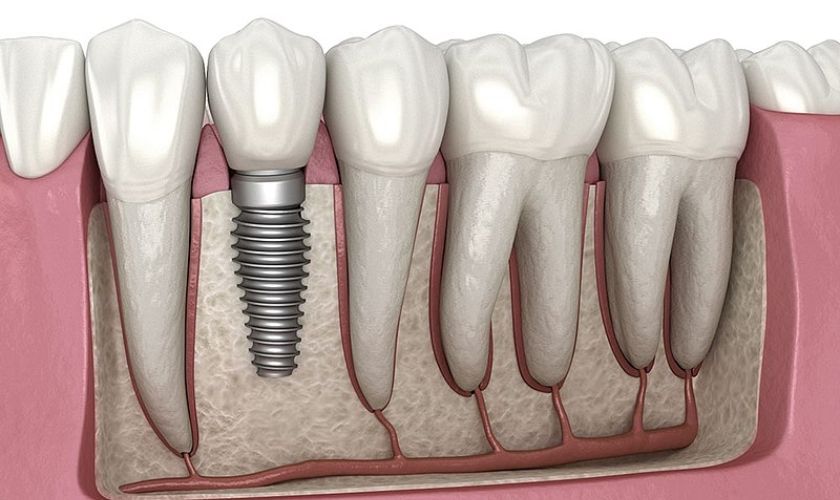Signs Of A Failed Dental Implant

Welcome to our blog! Today, we're diving into the world of dental implants and exploring the signs of a failed implant. Dental implants have become increasingly popular over the years as a long-term solution for missing teeth. They provide stability, functionality, and an improved quality of life for many individuals.
However, like any medical procedure, there are risks involved. Sometimes dental implants can fail due to various reasons – and it's crucial to be aware of the signs and symptoms that may indicate complications. In this article, we'll discuss these indicators so that you can spot them early on and seek timely treatment.
Common Causes of Failed Dental Implants
- Dental implants have become a popular solution for those who are missing teeth or need to replace damaged ones. While they can be a highly successful treatment option, there are instances where dental implants fail to integrate properly with the jawbone and surrounding tissues. Understanding the common causes of failed dental implants is essential in ensuring long-term success.
- One of the primary reasons for implant failure is poor oral hygiene. Inadequate brushing and flossing can lead to the accumulation of plaque and bacteria around the implant site, causing infection and bone loss. Smoking also significantly increases the risk of implant failure as it impairs blood flow, slowing down healing and compromising implant stability.
- Insufficient bone density or quality is another common cause of failed dental implants. Without adequate support from healthy bone tissue, implants may not fuse correctly during osseointegration, leading to instability and eventual failure.
- In some cases, incorrect surgical technique or placement errors can contribute to implant failure. Precise positioning and proper alignment are crucial for optimal outcomes. Any deviation from these protocols may compromise osseointegration or damage nearby structures like nerves or sinus cavities.
- Certain systemic conditions such as diabetes or autoimmune disorders can affect wound healing processes necessary for successful integration. Additionally, untreated periodontal disease prior to implant surgery significantly raises the risk of complications post-implantation.
- Excessive force on an implant due to bruxism (teeth grinding) can lead to mechanical overload and subsequent failure over time if left unaddressed.
- Being aware of these common causes empowers patients with knowledge that will help them ensure their dental implants stand the test of time! Regular check-ups with your dentist allow early detection & intervention when necessary! So take care of your oral health diligently; after all you deserve a smile that lasts a lifetime!
Signs and Symptoms of a Failed Dental Implant
When it comes to dental implants, it's important to be aware of the signs and symptoms that may indicate a failed implant. While dental implants have a high success rate, complications can occur in some cases. Here are some common signs to look out for:
1. Pain or Discomfort: If you experience persistent pain or discomfort around the implant site, it could be a sign of an issue. This pain may range from mild to severe and might increase when biting down or chewing.
2. Swelling or Inflammation: Swelling and inflammation around the implant area could indicate an infection or rejection of the implant by your body's immune system. It's essential to address this promptly with your dentist.
3. Mobility or Shifting: A stable dental implant should not move or shift once healed properly. If you notice any mobility in your implant crown, bridge, or denture attached to the implants, it could indicate bone loss around the implant.
4. Gum Recession: Receding gums around the dental implant can expose its metal post, creating an unaesthetic appearance and making your tooth more susceptible to damage.
5. Changes in Bite Alignment: A failed dental implant may cause changes in your bite alignment due to shifting teeth surrounding the affected area.
If you notice any of these signs and symptoms after getting a dental implant, don't panic but do make sure to contact your dentist as soon as possible for further evaluation and appropriate treatment options based on their expertise! Remember that early detection is key in resolving potential issues with your dental implants
Complications and Risks of a Failed Dental Implant
- When it comes to dental implants, there can be complications that may arise if the implant fails. These complications can pose risks to your oral health and overall well-being.
- One potential complication of a failed dental implant is infection. If bacteria get into the area where the implant was placed, it can lead to an infection. This can cause pain, swelling, and even damage to surrounding teeth and bone.
- Another risk associated with a failed dental implant is bone loss. When an implant fails, it can result in the loss of bone density in the jaw. This not only affects your oral health but also compromises the stability of other teeth nearby.
- Furthermore, a failed dental implant may cause nerve damage. Nerves in the surrounding areas can be affected by an unsuccessful implant placement or integration process. This can lead to tingling sensations, numbness, or even loss of feeling in certain parts of your mouth or face.
- Additionally, aesthetic issues may arise from a failed dental implant. The restoration attached to the failing implant may become loose or misaligned over time. As a result, you might experience difficulty chewing properly or have concerns about your smile's appearance.
- It's important to note that these complications and risks are not common occurrences with successful dental implants; however, they serve as crucial reminders for patients considering this procedure.
How to Prevent and Treat a Failed Dental Implant
Preventing and treating a failed dental implant is essential for maintaining oral health and avoiding further complications. Here are some tips to help you prevent and treat this issue.
1. Choose an experienced dentist: Selecting a skilled and qualified dentist who has expertise in dental implants can significantly reduce the risk of failure. They will ensure proper placement, use high-quality materials, and follow best practices throughout the procedure.
2. Practice good oral hygiene: Maintaining excellent oral hygiene is crucial not only for preventing gum disease but also for the long-term success of your dental implant. Brush twice daily, floss regularly, and use mouthwash recommended by your dentist.
3. Avoid smoking: Smoking can negatively impact the healing process after implant surgery and increase the risk of failure. Quitting smoking or refraining from it before and after the procedure can greatly improve your chances of success.
4. Follow post-operative instructions: After receiving a dental implant, carefully adhere to any post-operative instructions provided by your dentist. This may involve taking prescribed medications, avoiding certain foods or activities that could strain the implant area, or attending regular follow-up appointments.
5. Be mindful of potential risks: It's important to be aware of signs indicating possible complications with your dental implant such as pain, swelling, loosening or shifting of the crown or abutment, bleeding gums around the site, or unusual discomfort while chewing.
6. Seek prompt treatment if necessary: If you notice any signs or symptoms indicating a failed dental implant, don't hesitate to seek immediate professional care from your dentist. Early intervention increases the likelihood of successful treatment options such as bone grafting techniques or replacing the failing implant altogether.
Remember that each case is unique; therefore consulting with your trusted dentist about preventative measures tailored specifically to you is vital for optimal results.
Importance of Regular Check-Ups with Your Dentist
- Regular check-ups with your dentist are an essential part of maintaining good oral health. While it may be tempting to skip these appointments, thinking that everything is fine, there are important reasons why you should make them a priority.
- Regular check-ups allow your dentist to identify any potential issues early on before they become more serious and costly to treat. They can detect problems such as cavities, gum disease, or signs of a failed dental implant that you may not even be aware of. By catching these issues early, your dentist can provide the necessary treatment to prevent further damage.
- Routine visits enable your dentist to monitor the progress of any ongoing treatments or procedures you may have undergone. This is particularly crucial in the case of dental implants since complications can arise even after successful placement. Your dentist will assess the stability and functionality of the implant and address any concerns promptly.
- Furthermore, regular check-ups offer an opportunity for professional cleaning and maintenance. Even with diligent at-home oral hygiene practices, plaque and tartar buildup can occur over time. A thorough cleaning by your dentist helps remove this buildup and prevents potential gum disease or infection from developing.
- Lastly but importantly, regular visits contribute to overall peace of mind about your oral health. Knowing that you have a trusted professional keeping an eye on things gives you confidence in taking care of one aspect crucial for a healthy life like eating well without discomfort.
In this article, we have explored the world of dental implants and discussed the common causes, signs, and complications of a failed dental implant. We also touched on how to prevent and treat such failures through regular check-ups with your dentist.
Dental implants are undoubtedly a fantastic solution for replacing missing teeth and restoring confidence in one's smile. However, it is essential to be aware of the warning signs that may indicate a failed implant so that prompt action can be taken.
Remember, if you experience any persistent pain or discomfort around your dental implant or notice any changes in its appearance or functionality, consult your dentist immediately. Early detection and intervention can significantly increase the chances of salvaging a failing implant.
Regular check-ups with your dentist play an integral role in maintaining good oral health overall. Your dentist will closely monitor your dental implants during these visits to ensure they remain stable and healthy. They can also address any concerns or issues early on before they escalate into more significant problems.
Finding the best Geoegetown dentist is crucial for maintaining your oral health and ensuring a positive dental experience. By following these tips, you can streamline your search process and find a dentist who meets your needs.
Remember to prioritize factors like experience, qualifications, and reputation when selecting a dentist. Consider seeking recommendations from friends or family members, reading online reviews, and researching different dentists' websites.
November 7th, 2023
